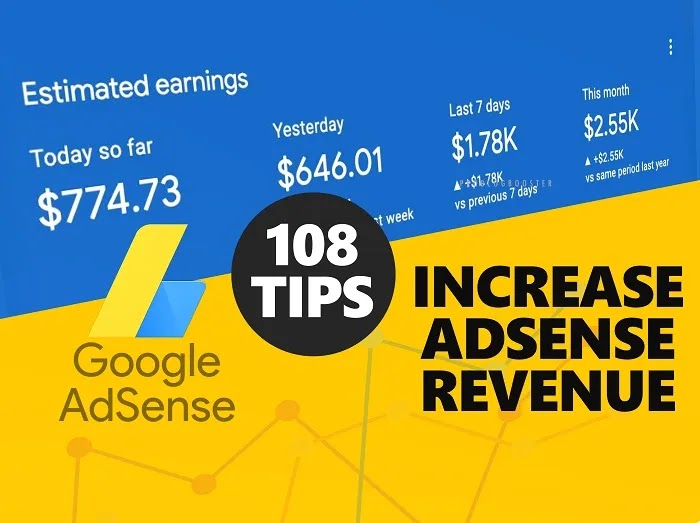The article discusses Jasper AI, transform the way you create content with Jasper AI! Discover the power of artificial intelligence in writing with its AI-powered content creation service. Create high-quality, original content for your blogs, business, or personal needs in a matter of seconds. With user-friendly interface and affordable pricing, Jasper AI is the perfect tool for enhancing your writing skills and improving productivity. Check out here for a comprehensive review and real-life examples of using Jasper AI.
How To Avoid GDPR Geo-Blocking | GDPR for bloggers | Guide To GDPR
What is GDPR —
Publishers used to search; What is GDPR for bloggers? What are GDPR compliance instructions for online publishers? How to avoid GDPR geo-blocking? How does GDPR affect bloggers? How to make sure your blog is GDPR compliant? GDPR for bloggers checklist? What do bloggers required to know about GDPR? What bloggers need to stop doing to avoid GDPR?
The General Data Protection Regulation (GDPR) act is actually an update of the Data Protection Act, which was signed in 1998. The update has been in the works for almost two years and was inevitable, as the previously instated regulations were outrageously outdated. The modern Internet is nothing like it was in 1998. Back then, you could physically eavesdrop on your dial-up connection (remember that?).
Though the new GDPR protects the personal data of citizens in the 28 EU member states, its impact transcends borders (yeah, just like the Internet itself). The fact of the matter is that companies and individuals (mostly bloggers) collecting and handling data worldwide must comply with the new set of regulations. Any entity (regardless of its location) dealing with EU citizens’ or residents’ data has to abide by the GDPR. According to Article 83.5, infringements could be subject to administrative fines up to 20 million Euros, or up to 4% of the total worldwide annual turnover of the preceding financial year for business - whichever is higher.
Some organizations have implemented geo-blocking measures because they needed time to ensure that their data management policies comply with the new regulations. Geo-blocking, short for geographical blocking, allows online services to restrict access based on a user’s physical location. As soon as the GDPR went into effect, quite a few major companies around the world started geo-blocking any traffic coming in from any of the 28 EU member states. Some notable examples that continue to geo-block users from the EU are the Los Angeles Times and the Chicago Tribune.
Read on and you’ll find useful tips to circumvent geo-blocking as well as advice for bloggers concerned about this massive change.

Who’s affected by the new GDPR?

GDPR applies to all markets and businesses founded in the EU, despite whether the collected information is processed in the EU or not. Even non-EU authorized groups will be subject to GDPR. If your industry offers products and/ or services to residents in the EU, then it's subject to GDPR.Understanding the new set of GDPR regulations is imperative, to put it lightly. Naturally, EU citizens are also affected by the new GDPR.
As discussed, residents of the 28 EU member states might not be able to enter certain websites due to GDPR-related geo-blocking.
You may also like to know; Wildcard SSL Certificates & Its Importance to Business | PR | DA | SEO | Security Certification
How geo-blocking works?
Simply put, geo-blocking limits the user's access to the Internet based on their geographical location. While the underlying idea of the Internet was to create a network that connects the whole world, quite a few websites remain confined to specific geographic areas.The technology behind geo-blocking is not that complicated. Each device that connects to the Internet has an IP address. Whenever you request to access content on a server, .i.e., a website, your device’s IP address is sent along with that request. Since your IP can be used to discover your location quite accurately, companies can easily block specific countries.
Check out; 8 Best Blogging Safety Tips to Make Your Blog Safe & Secure
How to Bypass Geo Restrictions??

A VPN is the most useful method to securely and privately bypass geo-blocking. It hides your real IP address and replaces it with the one that's located in other countries. Getting a VPN is simple and normally economical. Most VPNs are compatible with all operating systems.Besides ensuring secure connectivity, a VPN service allows you to hand-pick the location of your server. Yes, it's as simple as that: all you’ve got to do is choose a server that is not located in a region blacklisted by the website you’re trying to enter.
RECOMMENDED: Top 10 Best WordPress Security Plugins To Protect Your Website & Data
You may also like to know; Top 3 Challenges for Staying Safe Online While You Surfing The Internet | Beginners Guide
GDPR tips for bloggers

Most bloggers have at least an email list, which would fall under the legal definition of personal data in Article 4.1 of the new GDPR. As a blog owner, you must take all the necessary action to ensure that all data management operations regarding EU citizens’ information abide by the new set of regulations.
Without further ado, here’re a few GDPR recommendations:
1. Update your Privacy Policy
Under the new GDPR provisions, any entity that collects and processes data must have a clear and concise policy regarding such activity. Be sure to clearly state your methods of data collection, your management strategies, and how you protect that data.You should also describe how users can request any data you have on them and how they can demand its amendment or complete removal. While writing a Privacy Policy yourself is undoubtedly an option, consider using a service like iubenda.
2. Create a data protection plan
One of the critical aspects of the updated GDPR is that it requires data controllers to know what the collected data covers, where it’s stored, and to ensure its security. With that in mind, you need to take appropriate measures to protect your website and all databases containing personal data. You might need to implement additional security measures to comply with the new regulations.In case of a security breach, you must inform users and authorities within 24 hours. If you fail to comply with the security provisions in the new GDPR, you may face legal consequences.
3. Check third-party services that you might be using
Many bloggers use third-party services to run their websites. The only way to be sure that you’re GDPR compliant is to make sure that all of those third-party tools abide by the new set of regulations.The best way to do that is by making a list of all of the services you use and researching them thoroughly.
You can also read; Top 10 Best WordPress SEO Plugins & Tools Helping You Get Higher Search Rankings // WP Optimization
4. Create opt-in/opt-out forms
Long gone are the days of auto opt-ins. According to the new GDPR, you must present each user with clearly worded consent forms regarding data collection. Additionally, users must have an opportunity to opt-out at any time, and if they do, you’ll have to terminate all of the data held on that specific individual.Remember that you need to create or update consent forms regarding cookies and mailing lists. Under the GDPR, you are required to inform users what they can expect when they submit their personal data to you and how that data will be used.
Disclaimer
This post is not legal advice by any stretch of the imagination. For legal information regarding GDPR, we recommend seeking professional legal advice.
Bottom Line
Wrapping your head around the new GDPR in regards to your blog is essential if you want to work without facing legal action. Remember, these changes are not that hard to implement: millions of people have already done so, and now, just a month after the implementation of the new GDPR, there are quite a few services and tools that’ll make your life easier. Clearly, data regulation is a developing topic, and something the blogging community will have to keep an eye on at all times. For more in-depth information, be sure to read the full publication of the new GDPR.Although there've been mixed opinions regarding the GDPR, at the end of the day, these new regulations are a necessary step towards ensuring the transparency of data collection and management. It’s been over a month since the implementation of GDPR, and it has been messy, but that's not surprising since it marks a massive change in the way we treat personal data. The hope is that companies and individuals will settle in and the new GDPR will be nothing to worry about.











